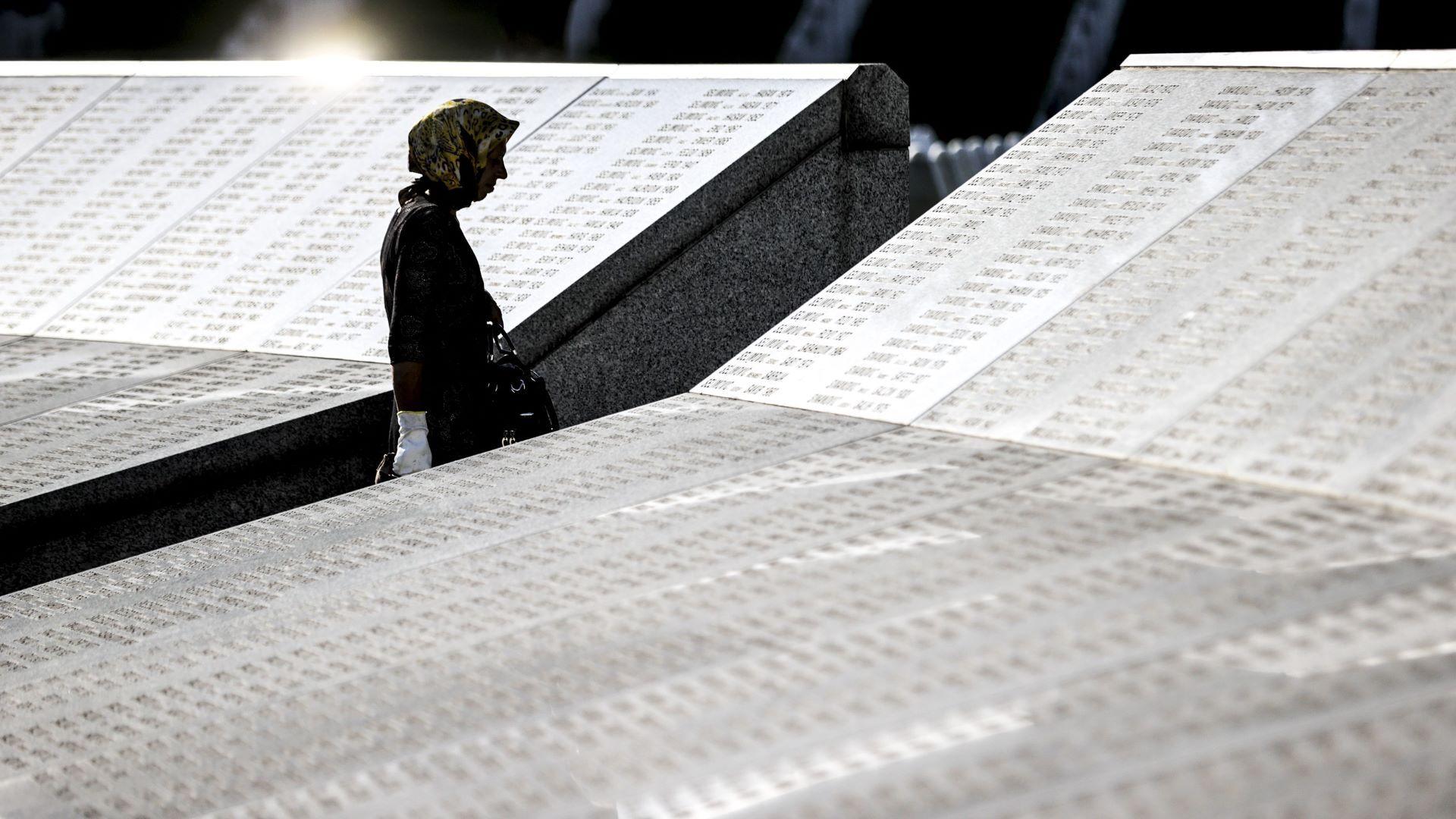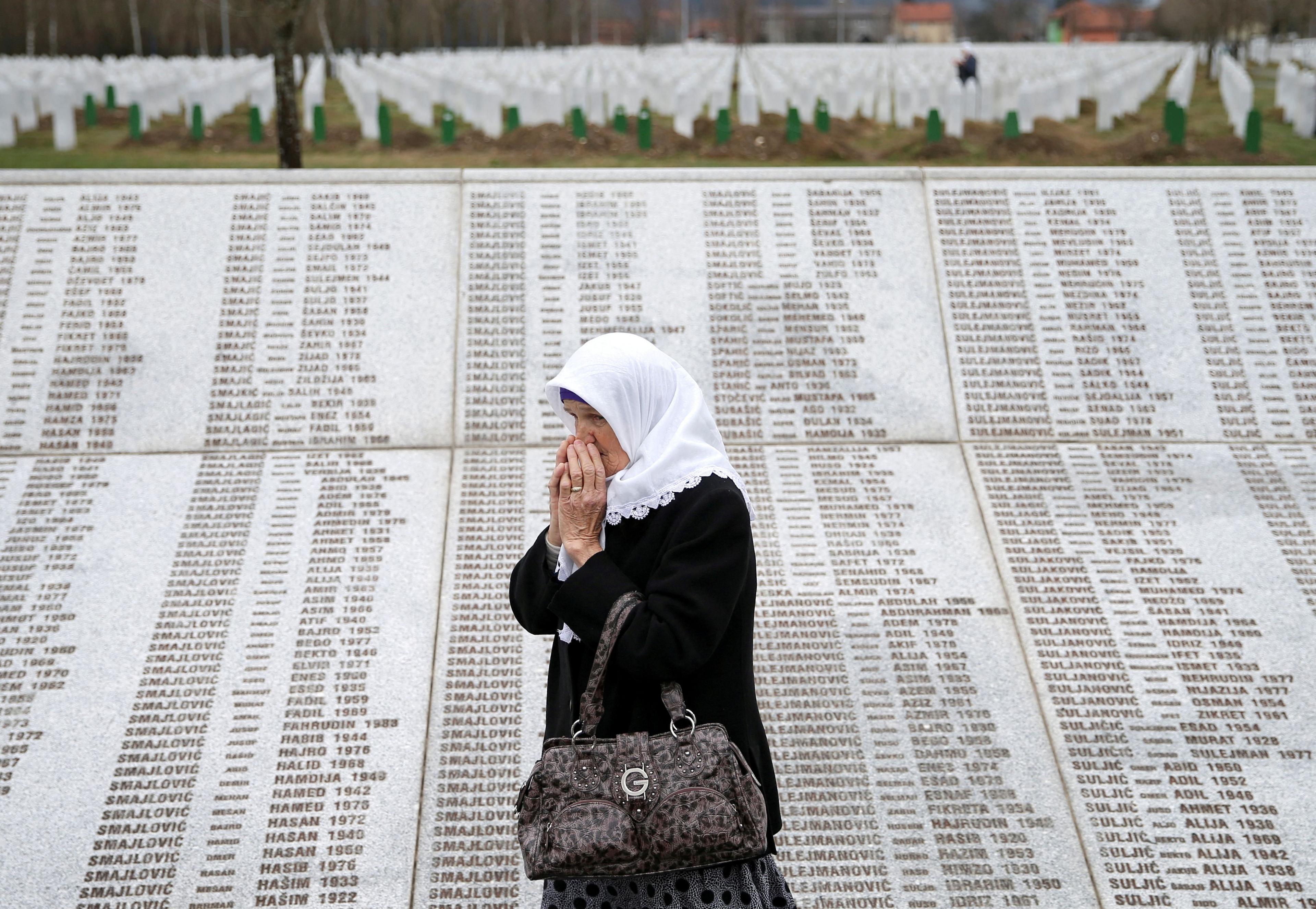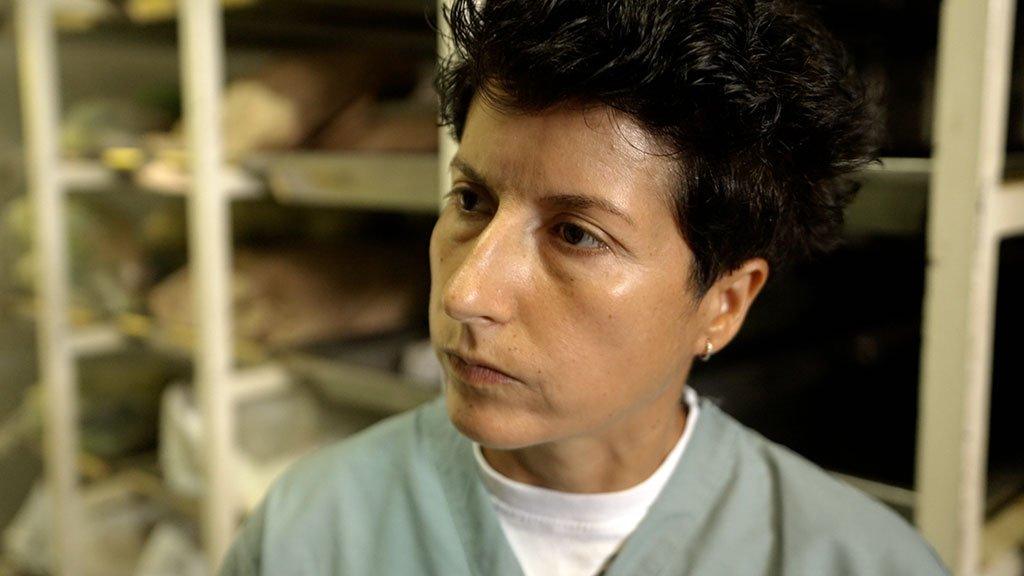Memorial to be held for Srebrenica massacre victims

More than 8,000 Bosnian men and boys were killed in less than one week during the massacre
- Published
A memorial service is to be held in Bradford later to remember victims of the 1995 Srebrenica massacre.
More than 8,000 Bosnian men and boys were killed in less than one week, in one of the worst massacres in Europe since World War Two.
Commemorations will begin with the raising of the Remembering Srebrenica flag in City Park before the service in City Hall.
Bradford Council said it had organised the event to "raise awareness of how hatred can lead to tragic loss of life".
In May, the United Nations voted to declare 11 July an annual day of remembrance for victims of the genocide.
A council spokesperson said Bradford was the first city in the UK to lay a memorial stone to commemorate Srebrenica, which is in the Peace Garden behind City Hall.
Sabiya Khan, Bradford's Remembering Srebrenica champion, said: “It is very important that we take this learning and awareness of these tragic events to all the people across the district so that future generations learn tolerance and reject hate.
"We are a diverse city where all cultures and faiths are embraced and supported to live peacefully together."
What happened at Srebrenica?
The Bosnian War of 1992-95 broke out with the collapse of the former European country of Yugoslavia, when Bosnia's Serbs launched a war to break away from the newly independent state they shared with Bosniaks [Bosnian Muslims] and Croats.
More than a million Bosniaks and Croats were driven from their homes in a Serbian "ethnic cleansing" campaign.
On 11 July 1995, the town of Srebrenica - one of six UN-declared safe havens - was captured by Bosnian Serb units led by Gen Ratko Mladic.
Bosniak women and children were driven away on buses, but more than 8,000 men and boys were taken prisoner and later shot. Lightly armed UN peacekeepers did nothing to prevent what became Europe's worst atrocity since World War Two.
Follow BBC Yorkshire on Facebook, external, X (formerly Twitter), external and Instagram, external. Send your story ideas to yorkslincs.news@bbc.co.uk, external.
Related topics
- Published24 May 2024

- Published11 September 2023
